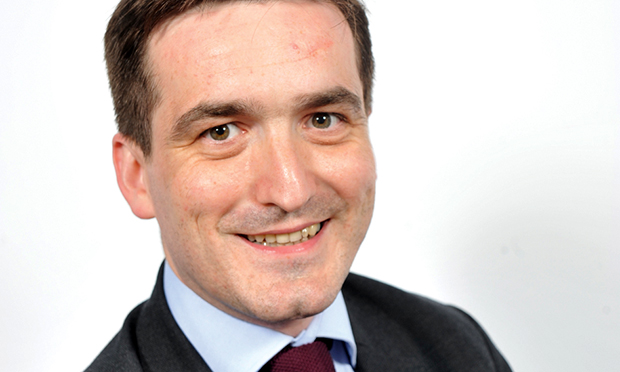Quitters a ‘priority’ but council failing to kick its own tobacco habit

Cllr Jonathan McShane says helping smokers quit is a key priority. Photograph: Hackney Council.
Stop Smoking services will not be axed by Hackney Council despite its continued investment in tobacco firms.
Around 40 per cent of local authorities in England are rolling back anti-smoking assistance in the face of budget cuts, according to a report published by Cancer Research UK.
But a spokesperson for Hackney Council said: “Tobacco Control and the provision of a high quality Stop Smoking Service is one of four priorities of the Council’s current Health and Wellbeing strategy. There are no plans to cut this service at present or during the financial year.”
Twenty per cent of Hackney’s population are smokers, according to council figures, meaning around 42,000 people in the area risk developing serious health issues which can lead to premature death.
Cllr Jonathan McShane, Cabinet Member for Health, Social Care and Culture, said: “These are shocking statistics and cost the borough an estimated £65.1 million per year.
“One of the Council’s key health priorities is to prevent the take-up of smoking and to help smokers quit. This is done by investing in a range of tobacco control programmes, including providing an effective, high quality Stop Smoking Service that has seen quit rates jump in one of our providers – the GP Confederation – from 19% to 50%.
“The Council’s Public Health team has also worked in partnership with the Parks team to create smoke-free spaces and with Trading Standards, Community Wardens, Police and HMRC to tackle illegal tobacco.”
But despite “investing in a range of tobacco control programmes”, the council also continues to invest millions of pounds in tobacco stocks through its pension fund. A spokesperson defended the apparently contradictory practice by saying the council has a “duty to maximize returns”.
However, Nigel Giffin QC, a lawyer approached for an opinion by the Local Government Pension Scheme (LGPS) advisory board, said councils should be free to divest their tobacco stocks as long as there is no financial detriment to the fund.
Martin Dockrell, Director of Policy and Research at anti-smoking charity ASH, questioned the prudence of tobacco as an investment, saying: “The problem is not just falling sales. All around the world the big tobacco companies face a perfect storm of tougher regulation and higher taxes while more governments sue for billions of dollars in healthcare costs.”
Councillor McShane recently called for a debate on whether cigarette companies are an appropriate investment, saying councils need to be “bold and act in the interests of their residents”.
The approach marks a radical change from 2011, when Labour councillor Patrick Moûle said in a tweet that “tobacco is a sound investment”.
